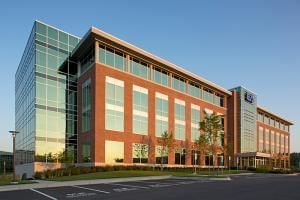Thermal treatment is the most common and logical remediation technique for per- and polyfluoroalkyl substances (PFAS) compounds. Solid materials that could be treated by this approach include PFAS-impacted soils, spent granular-activated carbon, and biosolids from wastewater treatment. During a webinar, EA’s Frank Barranco shared the firm’s experience on thermal treatment as well as the firm’s research with Strategic Environmental Research and Development Program (SERDP) and Environmental Security Technology Certification Program (ESTCP) associated with the U.S. Department of Defense.
While many thermal technologies are mature and are showing great promise, they haven’t been fully evaluated for their use with PFAS-impacted material. Ongoing research is being performed on the potential for rapid destruction, increasing the removal efficiency from impacted solid materials, understanding transformation mechanisms and the formation of incomplete combustion products, and the potential emissions from thermal systems involved in pilot- and full-scale work.
PFAS Stability and Strength
The carbon-fluorine bond is one of the strongest and most stable bonds in organic chemistry. The reason for the bond’s strength and stability is due largely to the electronegativity of the fluorine atom. Increasing the number of fluorine atoms attached to a single carbon atom increases the bond disassociation energy and requires additional thermal energy to break this bond. Shielding of carbon by fluorine within the PFAS molecule also contributes to thermal stability and increases bond disassociation energy.
| Bond | Bond Dissociation Energy (kcal/mole) | Reference |
|---|---|---|
| C-F | 130 | Dolbier, 1996, Chem. Rev. |
| C-C | 85 | Dolbier, 1996, Chem. Rev. |
| C-Cl | 81 | Chan et al, 2011, J. Am. Chem. Soc. |
| C-H | 100 | www:\\chem.libretexts.org |
| O=O | 119 | www:\\chem.libretexts.org |
| H-F | 135 | https://webbook.nist.gov/cgi/cbook.cgi?ID=C7664393&Mask=40 |
| H-Cl | 103 | www:\\chem.libretexts.org |
Thermal Transformation Mechanisms
Temperatures at which PFAS molecules typically volatilize may be higher than at which they start to thermally decompose. New technologies that rely on PFAS volatilization and/or thermal desorption will promote some degree of decomposition before or during desorption. This idea of PFAS transformation and decomposition during thermal desorption has been largely overlooked until recently.
Thermal treatment approaches that rely on relatively low temperatures (below 400 °C) and short residence times (i.e., hours to days) have a greater potential for generating incomplete combustion products than thermal treatment at conditions of higher temperatures (1,000 °C or greater). The temperature required to initiate PFAS decomposition largely decreases with increasing chain length. For instance, tetrafluoromethane (CF4) requires a higher temperature to initiate decomposition compared with perfluorootanoic acid (PFOA). The window of temperature and residence time is an important consideration when addressing transformation initiation and complete destruction of both short and long chain PFAS.
Treatment Techniques
Based on available information, there are four major categories of thermal technologies that are considered for treatment of PFAS-impacted materials and/or solids:
- Combustion—thermal energy in the presence of oxygen
- Pyrolysis—thermal energy in the absence of oxygen
- Gasification—thermal energy while starving the oxygen content
- Hydrothermal—low temperature, high pressure, and heat with an acid or a base catalyzed reaction
EA’s Research on Thermal Oxidation and Thermal Desorption
As part of EA’s research and development programs through SERDP ER18-1572 (opens in new tab), sand was spiked with a typical suite of PFAS, as well as a typical aqueous film-forming foam (AFFF), in controlled experimental conditions to study PFAS removal efficiency from the sand and investigate the thermal parameters for PFAS destruction. This proof-of-concept, pilot-scale study yielded optimized design parameters (i.e., temperature and residence time) for full-scale thermal desorption/thermal oxidation (TD/TO) treatment. An objective of this study was to assess if soil with relatively high concentrations (10s of parts per million) of individual PFAS compounds could be treated to low- or sub- parts per billion levels based on TD/TO. The study asked:
- Can soils be treated to low enough values where they could be reused on site again?
- Can PFAS precursors be destroyed from AFFF within soil?
- Can a destruction removal efficiency of 99.99 percent be achieved for the selected suite of PFAS tested?
- Can EA determine scalable unit costs for TD/TO for on-site ex situ treatment of soils representing subsurface contaminant source areas for PFAS plumes in groundwater?
TD/TO is a relatively mature technology that is just now being applied in a novel capacity to determine whether it can treat PFAS-impacted materials.
Results for Thermally Treating PFAS-Impacted Materials
Significant findings of the EA study indicate that optimized conditions for thermal desorption occur at 650°C and 97 minutes of heating. In addition, as shown by a complete fluorine mass balance, thermal oxidation affords PFAS destruction (resulting in the formation of hydrogen fluoride) at 1,000°C with 2 seconds residence time. Hydrogen fluoride can be addressed through air pollution controls employing wet or dry scrubbing.
 Frank Barranco, Ph.D., P.E., P.G., CMQ/OE
Frank Barranco, Ph.D., P.E., P.G., CMQ/OE
Director of Quality/Senior Vice President
Email Frank
Contact Us
